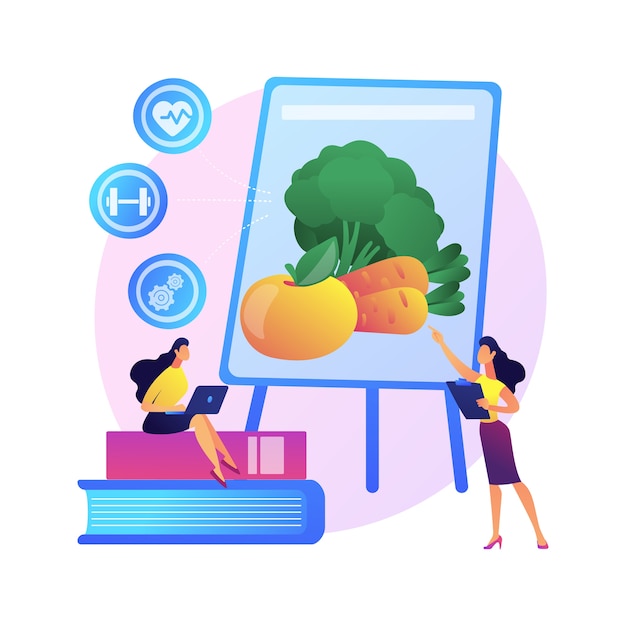
Eating healthy is essential for good health and maintaining a balanced weight. You can’t achieve this with just a few types of foods; instead, you need a variety of nutrients which come from different foods. Here are some tips for a healthier diet.
Ignoring your diet or consistently eating unhealthy food can lead to chronic diseases like type 2 diabetes, heart disease, high cholesterol, hypertension, osteoporosis, and even some cancers. What you eat affects both how you look and your overall health. Healthy eating supports not just your daily energy needs but also your mental health. It’s crucial not to neglect your diet.
11 Tips for a Healthier Diet
When we think about healthy food, we usually picture a few veggies, fruits, and meats, but a truly healthy diet is much broader. You need to understand what foods are good or bad for you and why. Here are some suggestions to help guide you.
1. Reduce Your Sugar Intake
Sugary foods and drinks are often tempting, but they have little nutritional value. They can raise your cholesterol, and blood sugar levels, and increase your risk of heart disease. Common sugary foods like white bread, candy, soda, pasta, snacks, and baked goods can lead to weight gain and other health problems. Instead, replace these with natural sugar-rich foods and sugar-free beverages that have high nutritional value.
2. Eat a Variety of Nutrient-Rich Foods
It’s common to stick to certain healthy foods, but a limited diet restricts your nutrient intake. Make sure to include a variety of nutrient-rich foods daily, such as whole grains, fresh fruits, vegetables, and nuts. This variety ensures you get a range of nutrients and reduces the risk of consuming toxic substances from limited food sources.
3. Avoid “Diet Foods”
So-called diet foods often contain high levels of sugar and other unhealthy ingredients. Despite their low-fat or low-calorie labels, they can still be detrimental to your health. Avoid them to prevent weight gain and other health issues.
4. Prefer Skim Milk Coffee Over Whole Milk
Starting your day with coffee is fine, but use skim milk instead of whole milk. Skim milk is free from cream and fat, offering essential nutrients like calcium and protein without the added fats that contribute to weight gain and health problems.
5. Eat Whole Fruits Instead of Drinking Juice
Whole fruits provide fibers, antioxidants, vitamins, and natural sugars. Whole fruits have more nutritional value compared to their juice forms, which often contain added sugars and lower fiber content. Eating whole fruits helps in maintaining a healthy blood sugar level and keeps you full longer.
6. Choose Baked and Roasted Foods Over Grilled or Fried Foods
The way you prepare food affects its nutritional value. Baking and roasting preserve nutrients better than grilling and frying, which can create toxic compounds and reduce the food’s nutritional quality. Stick to healthier cooking methods like simmering, baking, slow cooking, pressure cooking, poaching, and stewing.
7. Prefer Fresh Berries Over Dried Ones
Fresh berries are nutritious, packed with fiber, vitamins, and antioxidants. Dried berries, however, contain more calories and sugars because they lack water content, which can spike your calorie and sugar intake. Opt for fresh or frozen berries for better health benefits.
8. Eat Whole Grain Foods
Choose whole grain foods like whole wheat, barley, brown rice, and oats. These foods are healthier than refined grains and provide more fiber, vitamins, and minerals. They can help maintain a healthy weight and reduce the risk of chronic diseases like type 2 diabetes, stroke, cancer, and cardiovascular diseases.
9. Use Healthy Cooking Oils
Avoid highly processed vegetable and seed oils, which are high in Omega-6 fatty acids and low in Omega-3s, triggering inflammation and other health problems. Instead, use healthier cooking oils like rice bran oil, extra virgin olive oil, coconut oil, and avocado oil.
10. Reduce Your Sodium Intake
While sodium is essential for meal preparation, too much can be harmful, especially for those with high blood pressure. Avoid foods high in sodium and use moderate amounts when cooking. Eat potassium-rich foods like bananas, avocados, beans, dairy products, and certain fish to help balance sodium levels.
11. Drink Alcohol in Moderation
If you consume alcohol, do so in moderation—one drink per day for women and two for men. Excessive alcohol intake can damage your liver and increase the risk of certain cancers and other chronic conditions. Moderation is key to enjoying the benefits of alcohol without the risks.
Following these tips can help you lead a healthier, more balanced life.